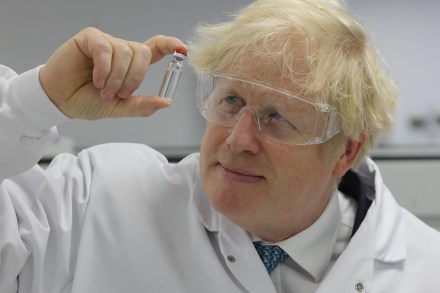Portrait of the week: Vaccine shots, Brexit stutters and a frosty reception for the royals
Home The Pfizer/BioNTech coronavirus vaccine began, rather slowly, to be given to some old people in hospital and health workers. Margaret Keenan, 90, was the first outside clinical trials to receive it. At the beginning of the week, Sunday 6 December, total deaths (within 28 days of testing positive for the coronavirus) had stood at 61,014, including 2,771 in the past week; the number for the week before was 3,617. Rita Ora, the singer, a week after apologising for entertaining 30 people at a birthday party on the ‘spur of the moment’, remembered to apologise for not having gone into quarantine at the time, after returning from Egypt. England’s cricket





















